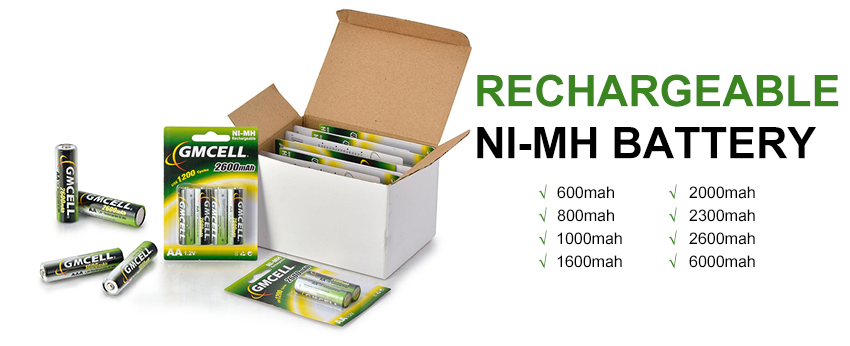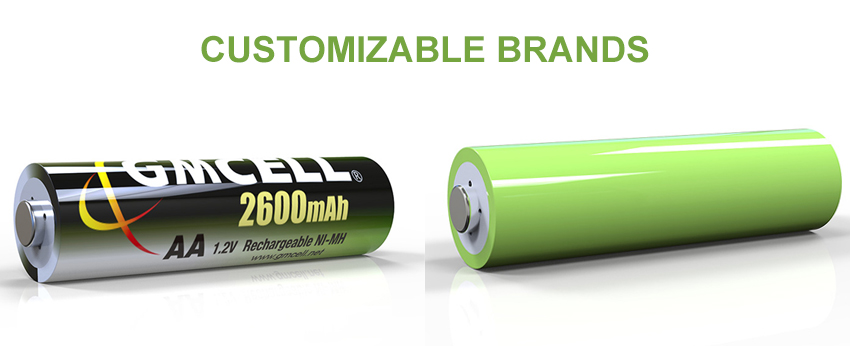
Nickel-metal hydride batteries are a type of rechargeable battery with high energy density, longer lifespan, fast charging, and low self-discharge rate. They are increasingly used in electronic products, providing convenience and enjoyment in our daily lives. This article will introduce the characteristics, advantages, and applications of nickel-metal hydride batteries in electronic products. It will also discuss the impact of environmental trends on their development and finally explore their cost-effectiveness.
Firstly, let's take a look at the characteristics of nickel-metal hydride batteries. Compared to traditional alkaline batteries, they have several significant advantages: higher energy density, longer lifespan, rapid charging, and lower self-discharge rate. These features make nickel-metal hydride batteries an ideal choice for many electronic devices such as power tools, mobile phones, digital cameras, etc. They provide longer usage time compared to disposable alkaline batteries, reducing the hassle of frequent battery replacements.
Next, let's discuss the advantages of using nickel-metal hydride batteries in electronic products. Firstly, due to their high energy density, they can deliver more powerful performance, enhancing the functionality of electronic devices. Secondly, their low self-discharge rate ensures that they maintain a high level of charge during storage, minimizing the problem of running out of power during use. Additionally, nickel-metal hydride batteries exhibit good environmental adaptability, functioning stably under various temperature and humidity conditions, providing reliable power supply for our electronic devices. As a result, an increasing number of electronic products are adopting nickel-metal hydride batteries as their power source.

However, as people become more environmentally conscious, we also start to pay attention to the potential impact of nickel-metal hydride batteries on the environment during production and disposal. Compared to disposable alkaline batteries, the production process of nickel-metal hydride batteries is relatively complex, requiring more energy and raw materials. Moreover, discarded nickel-metal hydride batteries contain heavy metals and harmful substances that may contaminate soil and water sources if not handled properly. These factors pose challenges to the sustainable development of nickel-metal hydride batteries.
To address these challenges, many manufacturers actively take measures to improve the environmental friendliness of nickel-metal hydride batteries. On one hand, they continuously improve production processes and technologies to reduce energy consumption and raw material usage. On the other hand, they promote recycling and reuse measures to ensure proper handling of discarded nickel-metal hydride batteries and prevent negative impacts on the environment. These efforts not only enhance the environmental performance of nickel-metal hydride batteries but also strengthen consumer trust in them.
So why are nickel-metal hydride batteries considered cost-effective? Firstly, compared to disposable alkaline batteries, they have a longer lifespan, reducing the costs associated with purchasing and replacing them. Secondly, although the price of nickel-metal hydride batteries is relatively higher, their higher energy density provides more prolonged power support for electronic devices. In addition, due to their lower self-discharge rate and stable performance, devices using nickel-metal hydride batteries usually offer a better user experience. Considering these factors together, we can see that nickel-metal hydride batteries have cost-effectiveness advantages.
In conclusion, as a high-performance and environmentally friendly power supply solution, nickel-metal hydride batteries are widely used in electronic products. They not only have advantages such as high energy density and long lifespan but also provide reliable power support for devices. Although there are challenges in production and disposal processes, with advancements in technology and increased environmental awareness, these issues will gradually be addressed. Meanwhile, by improving cost-effectiveness, nickel-metal hydride batteries will further enhance their competitive position in the market. Let us look forward to more excellent electronic products adopting nickel-metal hydride batteries as their power source! For a more comprehensive product experience, please visit
Post time: Oct-31-2023




